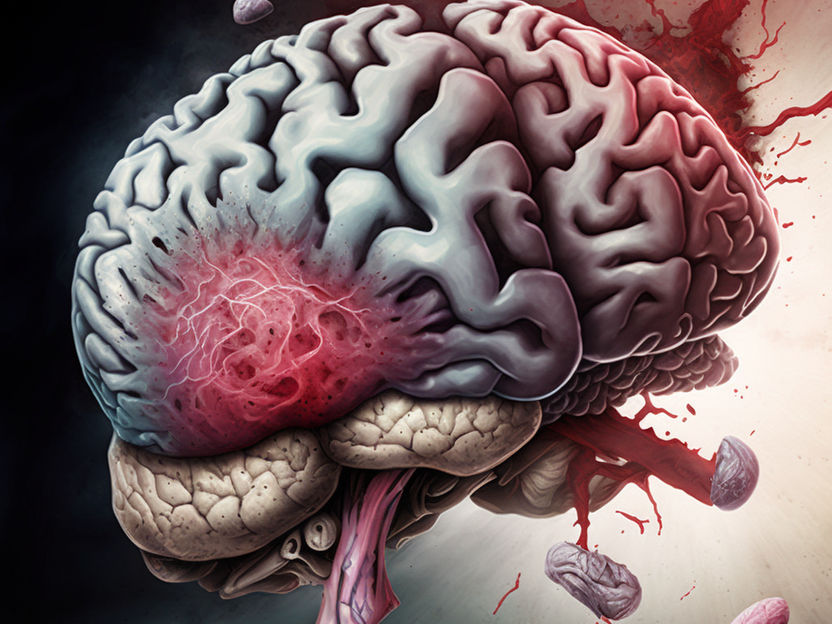Allergies, an ally against cancer?
A new preclinical study in mice shows how allergy induced inflammation can help combat brain tumour progression
Advertisement
A study co-led by the Neuro-Immunology group, the Allergy and Clinical Immunology group, and the NORLUX Neuro-Oncology Laboratory at the Luxembourg Institute of Health has discovered that allergic immune responses in mice implanted with brain tumour cells can prevent their growth and progression, confirming epidemiological links found in patients. This finding, published in the European Journal of Allergy and Clinical Immunology, describes in detail how allergic inflammation can reprogram the brain’s immune cells to better defend against tumours.

Symbolic image
Computer-generated image
Glioblastoma (GBM) is a highly aggressive type of cancer that occurs in the brain. Despite the range of available cancer treatments, including surgical intervention, radiation and chemotherapy, this stubborn tumour type remains incurable. Further complicating things is the fact that GBMs seem to be able to evade our immune system. While other cancers such as melanoma and certain types of lung cancers respond well to immunotherapy, GBMs are highly resistant and all efforts to date in this respect have failed. Hence, new approaches are necessary to try and exploit the immune system's inherent tumour fighting ability to successfully treat GBM patients.
A promising avenue of investigation can perhaps be gleaned from the many epidemiological studies in brain cancer patients that have recognized the negative correlation between allergies and GBMs. Not only that, there is a growing body of evidence that suggests that allergic inflammation is activelyinvolved in anti-cancer immunity, even inspiring a new research field known as “AllergoOncology”. However, as of yet, the mechanisms underlying this immuno-protective allergic response have not been thoroughly explored.
To address this knowledge deficiency, the Dept. of Cancer Research and the Dept. of Infection and Immunity at the Luxembourg Institute of Health (LIH) joined forces and launched a project to investigate. Their unique combination of proficiencies allowed the team, led by Dr Aurélie Poli of the Neuro-Immunology group, to successfully establish an allergy induced mouse model implanted with GBM cells, reflecting the human situation and confirming the observations seen in the aforementioned patient studies.
“Our work provides a preclinical model that mimics the long-term observations made in humans that allergies confer protection over GBM progression as well as evidence that allergic inflammation makesanti-tumoural immunity in the brain more potent and limits GBM-induced immune suppression”explained Dr Poli, lead author of the study.
The LIH mouse model demonstrates that allergies cause the brain’s immune cells, known as microglia, to reprogram themselves into a more aggressive inflammatory state, combating the implanted GBM cells and preventing their growth. Further analysis of the genetic profile of these cells has also led to the identification of an allergy-related gene signature associated with an improved prognosis in GBM patients. Not only that, the allergy induced mice also exhibited an increase in tumour infiltrating T-cells, the frontline soldiers of the immune system. Consequently, mice that weren’t induced with allergies had none of these benefits and their survival in response to the implanted brain tumours was noticeably reduced.“This study highlights the critical relationship between allergies and brain tumoursand is the basis for further examinations into protective immunity against GBM” according to ProfMarkus Ollert, one of the senior co-authors of the study.
“Our findings will help pave the way towards the advancement of new therapies targeting microglia and their ability to mobilize the immune system against GBM” added Dr Simone Niclou, the othersenior co-author.



























































